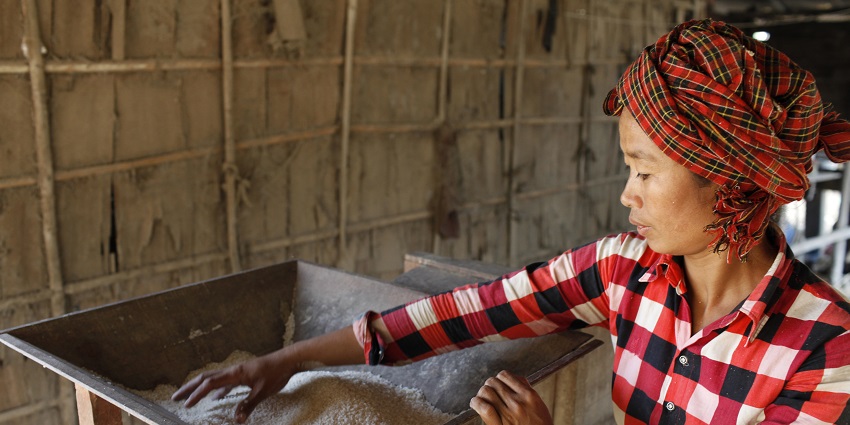An international coalition to protect microfinance institutions and their clients in the Covid-19 crisis

©Philippe Lissac
At the initiative of the Grameen Crédit Agricole Foundation, a group of donors and microfinance platforms has developed a set of principles to better support the microfinance sector during the health and economic crisis caused by Covid-19. Grameen Crédit Agricole Foundation, ADA, Alterfin, Cherry, CIDR Pamiga, Cordaid Investment Management, Crédit Agricole CIB India, CA Indosuez Wealth (Asset Management), European Microfinance Network, FS Impact Finance, InFiNe.lu, Inpulse, Luxembourg Microfinance And Development Fund, MCE Social Capital, Microfinance Center, Rabo Foundation, SIDI, SIMA And Social Performance Task Force are the first signatories of a joint commitment aimed at supporting microfinance institutions and vulnerable clients during this crisis.
Globally, microfinance institutions provide financial and non-financial products and services to more than 140 million low-income clients [1]. Microfinance plays a vital role in financing income-generating activities in both the formal and informal sectors. In the context of the Covid-19 crisis, microenterprises in the informal economy and small businesses are a key component of economic and social recovery. Supporting microfinance institutions in this context is therefore of paramount importance to protect their most vulnerable borrowers.
Faced with these challenges, a group of donors and microfinance platforms have taken up the challenge and established a common commitment: “ Key principles to protect microfinance institutions and their clients in the Covid-19 crisis ". It aims to guide donors and other stakeholders to better support microfinance institutions and vulnerable clients during this crisis. It draws on best practices and tools from the microfinance sector, such as the work carried out by the Social Performance Task Force [2] and the IAMFI Principles on Debt Rescheduling in Microfinance [3].
The fundamental principles of this commitment are the pooling of available information, analyses, and anticipations, as well as the concerted implementation of shared decisions. The signatories agree to coordinate policies, technical assistance, and resources to help microfinance institutions cope with the crisis. The objective is to protect both microfinance institutions and their clients, ensuring continued access to financing under the best possible conditions and ensuring the well-being of clients and staff.
Given that individual obligations and mandates may influence how the commitment's provisions are implemented, this is not a legally binding agreement. It is not a fixed document; it could be improved as needed to better respond to the evolving crisis. Signatories to the commitment will maintain open communication with their peers to share their decisions and adhere to these principles.
The signatories invite other stakeholders to join this joint and committed initiative. The involvement of private, public, and solidarity-based actors is central to monitoring and supporting the actions of microfinance institutions worldwide. Strengthening the impact of financial inclusion is essential to combating poverty in this unprecedented context.
—————————————————-
[1] Microfinance Barometer 2019
[2] //sptf.info/resources/covid19
[3] Charting the Course: Best Practices and Tools for Voluntary Debt Restructurings in Microfinance, IAMFI, Morgan Stanley, 2011. The document is available on Findev Gateway



Leave a Reply
Want to join the discussion?Feel free to contribute!